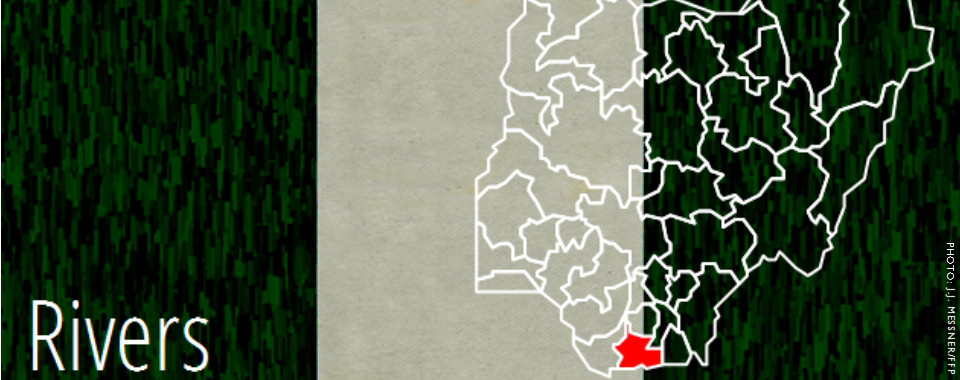BY NATE HAKEN*
Among the largest of the oil-producing Nigerian states, Rivers had been at the heart of the Niger Delta militancy until 2009. Currently, the state is beset with a different array of issues as some former combatants have turned to criminality and uneven economic development continues to pose a challenge to sustainable peace and human security. The following bulletin is a closer look at the patterns of conflict risk at the local level.
Since 2010, the number of fatalities associated with conflict risk factors has decreased slightly, though violence appears to be rising since the beginning of 2013. Of the 23 Local Government Areas (LGAs) in Rivers State, those with the highest number of reported incidents per capita resulting in fatalities were Port Harcourt, Eleme, Khana, Ikwerre, Emohua, and Obio/Akpor. Since May 2013, political tensions have been elevated in Rivers State after the disputed Nigerian Governor’s Forum election, in which Rivers State Governor Rotimi Amaechi was the incumbent. Amid rising tensions with the ruling People’s Democratic Party (PDP), in November 2013 Amaechi left and joined the opposition All Progressives Congress (APC) along with a number of other governors and politicians. Protests both for and against the governor have continued, usually ending with a non-violent police intervention. In January 2014, tensions spiked when Senator Magnus Abe was reportedly shot with rubber bullets at a pro-Amaechi rally and had to be flown abroad for medical treatment. Also in January a bomb exploded at the Ahoada East High Court in what was suspected to be a politically motivated attack.
This Conflict Bulletin provides a brief snapshot of the trends and patterns of conflict risk factors at the State and LGA levels, drawing on the data available on the P4P Digital Platform for Multi-Stakeholder Engagement (www.p4p-nigerdelta.org). The summaries draw on 2012-2014 data collected by FFP’s UNLocK, the Council on Foreign Relations’ NST, WANEP Nigeria, CSS/ETH Zurich, Nigeria Watch, and ACLED integrated on the P4P platform.
*Patricia Taft and Jennifer Lowry also contributed to this report.
